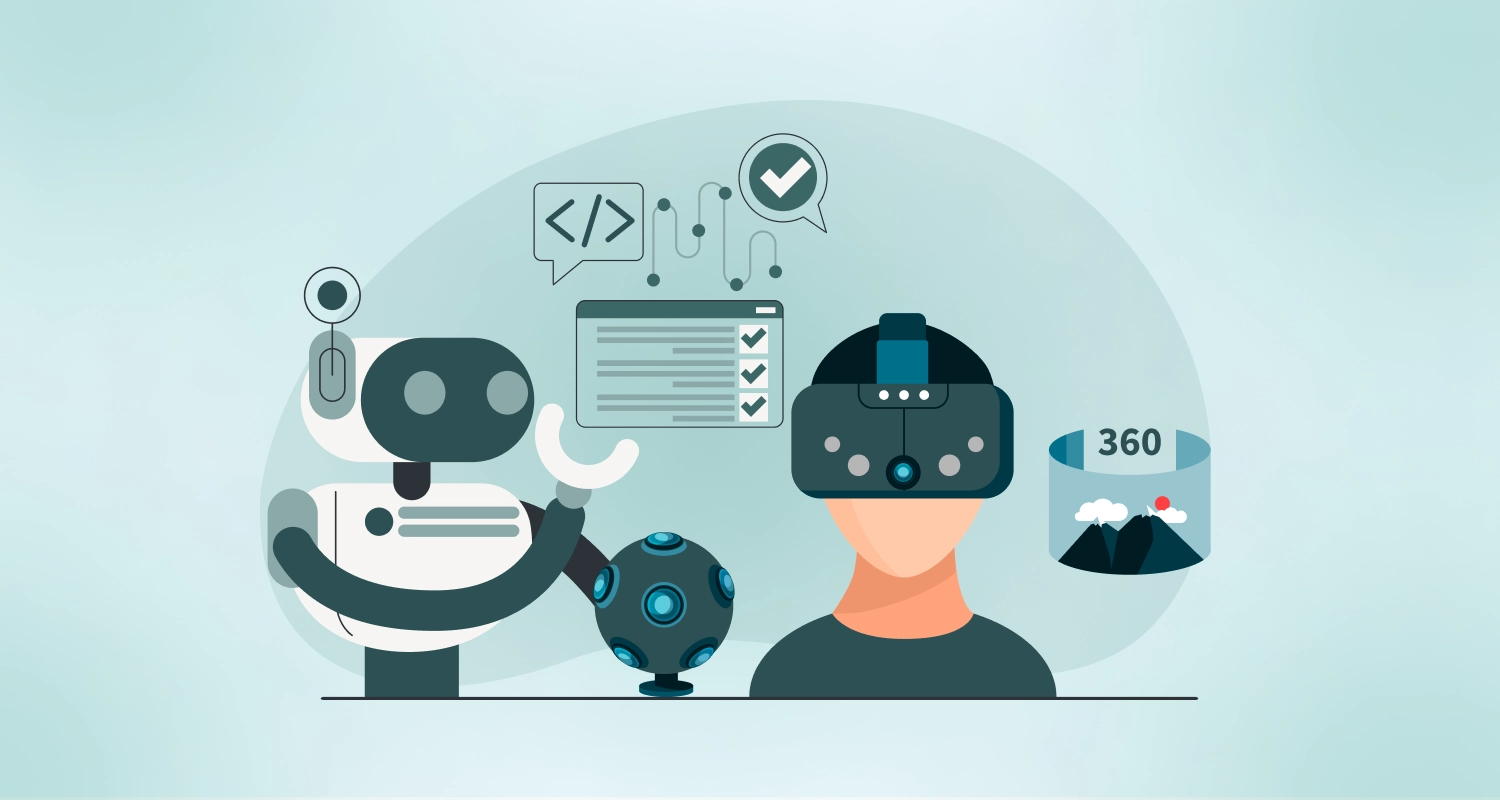A part of digital content connected to the blockchain is referred to as a Non-Fungible Token or NFT in short. Texts, photos, digital artworks, audio recordings, domain names, trade cards, and in-game objects are examples of NFT. Each NFT item is unique, and you cannot substitute another item for it. CMARIX is one the best Fintech Software Development Companies in 2022 and they are having standardized the NFT production, which will enable the user to get a higher level of interoperability or the capacity of blockchains to communicate with one another. As a result, these non-fungible tokens can get an exchange offer from different decentralized applications.
The specific properties of NFT tokens are, they cannot be divided into smaller parts, and it is super easy to get the details of the particular NFT tokens and their owner. As a matter of fact, the uniqueness of these tokens doesn’t let you exchange these items. A number of cryptocurrency exchanges can be exchanged for NFTs. This will allow its owners to profit from innovative trading methods. Bundling, bidding and market sales capacity offer unlimited options for NFT owners.
The non-fungible tokens get traded instantly, as it helps them to quickly boost their liquidity. The target demographic on various NFT platforms might range from newcomers to professional traders. It means that the digital assets will get exposed to a larger pool of buyers. Like any other digital asset, NFTs are fully programmable, and CMARIX developers can help you program them on your terms. These tokens are frequently connected with complicated mechanisms like crafting, forging, and random generation, as the options for designing are limitless.
Read More: The Next Big Fintech and Software Development Opportunities In IT
Ways to Build NFT Marketplace
To build your NFT Marketplace, follow the listed points to get an illustrative idea:
- Define the special segment of the Market:
The user should be aware of the present market to establish a booming NFT marketplace. The user should pay more attention to the vertical market than the horizontal market because, in the vertical market, the supplier sells products that fulfill the needs of a specific type of target audience. - Choose Your Preferable User roles:
Buyers, inventors, and administrators are the only three types of user roles that you can choose in your NFT marketplace platform. - The use of Project Documentation:
The website development process begins with project documentation. When the user hires a full-time development team, project documentation loses its value, and you can skip this step. But if the user is willing to operate a remote development team, the project documentation becomes a necessity for the Non-fungible tokens marketplace development. In reality, the project documentation step saves a lot of time as they provide a detailed roadmap to the next step. - Development Stage:
Next comes the development step, where the user gets to decide which type of framework would be the most suitable one for the assigned project. The developers can use a dedicated Software Development Kit to ensure fast platform operation, security, and excellent performance. - Implementing Token Generators:
In this stage, a user has the option to generate small contracts by token generators. Small contracts are self-executed contracts where the mentioned terms and conditions between the buyer and seller are in the form of code lines. The code and agreement exist on a classified, decentralized blockchain network. The primary purpose of this step is to use logic on the webpage. - Testing & Execution of NFT Marketplace:
As this is the final step, the user needs to identify bugs and fix them. Testing software can ensure the user that the current project meets the requirements of the planned project. The primary reason for this step being super important is that a completely tested software product will ensure security, reliability, and high performance after the launch.
Workings of an NFT Marketplace
The establishment of the NFT markets has grown to an amazing degree, and there are several NFT markets present for the buying of digital assets. You can acquire a particular kind of NFTs from a specific NFT marketplace. Most markets impose a gas cost, which the Ethereum Blockchain levies for a transaction. The price varies according to marketplace construction. The conversion of conventional cash into Ethereum is a frequent payment method.
Depending on the market, the sale procedure for NFTs differs. In the beginning, the user should upload and follow the instructions for converting the materials onto the marketplace. Once the conversion procedure has taken place, the user would receive a description of their digital assets and a fixed price or an auction for their digital assets. For the transaction procedure, the frequently accepted cryptocurrency is Ethereum.
Cost of Building NFT Marketplace
As we have come to an exciting and tricky part of the topic, the cost of building an NFT marketplace varies for many reasons. In a nutshell, the price range depends on the amount of the required work. If you elect to choose a ready-to-install system, the cost will be lower. Simultaneously, the Non-fungible tokens marketplace development services from a reliable software development company like CMARIX would be costlier. It is because the professionals will need to establish a user flow, develop the features and design the client’s solution from the start.
The same goes for the platform functionality, as the more complex platform you build, the more money will have to be invested in the marketplace development. For the reader’s convenience, we created a table for showing them the particular time and cost of the features to develop.
| Features | Time taken as Hours | Price of development for $45 per hour |
| UI or UX Development | 42 hours | $1890 |
| Authorization & Security | 72 hours | $3240 |
| User Profile | 42 hours | $1890 |
| Homepage | 84 hours | $3780 |
| Search & Filter | 96 hours | $4320 |
| Product Page | 42 hours | $1890 |
| Review & Rating | 48 hours | $2160 |
| Shopping cart | 48 hours | $2160 |
| Payment Gateway | 42 hours | $1890 |
| Notification | 32 hours | $1440 |
| Etherium Integration | 96 hours | $4320 |
| NFT Management | 96 hours | $4320 |
| Inventory Management | 42 hours | $1890 |
| Buyer’s Panel | 64 hours | $2880 |
| Author Panel | 132 hours | $5940 |
| Admin Panel | 85 hours | $3825 |
| Total | 1063 hours | $47835 |
The chart above demonstrates the fundamental presumption that building an NFT marketplace would cost. Depending on the market type used by the user, the aforementioned costs will vary and rely on the user’s requirements.
Read More: How IoT and Wearable Will Transform Fintech in 2021
Features to Create in a Market Place
- Storefront:
The Storefront is the NFT marketplace area that offers consumers extensive information on the products, their owner, tenders, price history, and many more. - Live Auction Feature:
Fintech software development companies can buy several non-fungible tokens via the live auction feature. This feature contains several critical pieces of information such as the name of the tokens & seller, payment methods to utilize, picture, price, number of quotations from other buyers, and the time remaining for the tendering. - Search Option:
The NFT marketplace must include a class tagging and administration feature, making it easier for customers to search for products they want to buy on the platform. - Collections on Trend:
If shown properly in the trending collections area, some unfeedable tokens are given high sales prices. Therefore, the NFT market must construct a specific “trending collections” part, which provides valuable insights, such as average price, the characteristics of the seller’s name, total supply, and volume of trade. - Listing Feature:
A feature of the NFT marketplace that is specifically for sellers. The developers should create the platform to allow the users to create listings, thereby enabling them to add in the details of their NFT. - Auction & Purchasing Option:
An NFT marketplace must have an auction feature and buying options, where the users could easily attach bid amount, expiry date, and a watch list that will show all details of the bids. - Wallet System:
It is important that a wallet should be available on the market, allowing users to transfer, receive and store non-fungible tokens and cryptocurrencies. The wallets you use to transfer, receive, and store NFTs and Cryptocurrencies will be used by your users. The NFT market should be built using either a personal wallet or the ability to link current wallets in order to offer consumers a smooth experience. - Allowing several Payment Methods:
In addition to popular crypto wallets, a decent NFT marketplace should be equipped with multiple payment options, including debit cards, credit cards, and wire transfers. - Instant Notification:
The marketplace should have an instant notification tool that sends all the newest information via emails and pushes notifications about real-time data such as the debut of collectibles, new non-fungible tokens, future auctions, and so on. - Customer Support:
The NFT marketplace should include a facility for customer service, which can play an important role in increasing client retention.
You may like this: Building a Two-Sided Marketplace for Your Business
Conclusion
The current trend with constantly increasing values is NFT marketplace development. Now that non-flammable tokens are growing, the platform is drawing more and more people by its attractive characteristics. In addition, investors have been increased by their high trend graph in contemplating blockchain platforms. Therefore, there are a great deal of possibilities for the NFT marketplace in the future.







